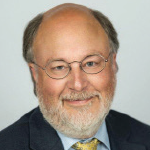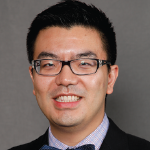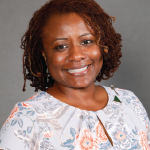Rheumatology is a small specialty, but the ACR has a large footprint in terms of activities and impact. The ACR’s remarkable success can be attributed to effective collaboration between a highly professional and talented staff and a large number of volunteer members. Under the direction of the Board of Directors, the activities and strategic initiatives of the organization are accomplished by various standing committees, special committees and ad hoc task forces—all comprising volunteers and staff liaisons. The Rheumatology Research Foundation also accomplishes its important work with volunteer ACR members.
Our volunteers come from every aspect of rheumatology, including practicing rheumatologists, academic researchers, industry employees, fellows in training and members of the many professions represented by the ARHP, including therapists, psychologists, pharmacists, nurses and nurse practitioners, physician assistants, practice managers and many others.
The ACR produces a remarkable breadth of services and products. All deliverables are high quality, and many are admired among professional organizations for their innovation and success. Even a partial listing makes it clear that opportunities for volunteer work are varied. For example, consider the range of topics presented at the ACR/ARHP Annual Meeting, the online learning modules produced by the ARHP, the many levels of support and advocacy for rheumatology practices and their patients provided via the Committees on Rheumatologic Care and Government Affairs, and the various programs and materials produced in support of medical students, residents and rheumatology fellows in training.
Some of this volunteer work is accomplished by individuals working at home or in their community. Many volunteers travel to committee and leadership meetings around the country, and an increasing number of rheumatology health professionals, trainees and patients travel to Washington, D.C., once or twice a year to meet with legislators and other government officials to advocate for rheumatology and patients with rheumatic and musculoskeletal diseases. Our volunteers include clinical practitioners, researchers, educators and employees of industry and government.
Thus, if you have a specific interest, there is likely a volunteer role to match your interest.
Organizing Volunteers
Despite the many and varied opportunities—and the organizational goal to encourage and foster volunteerism—developing and maintaining an effective process to tap the potential of our volunteers presents challenges. We are fortunate to have great interest and participation from our members.
The formal volunteer roles, including standing committee members, chairs and Board of Directors, are assigned by the Committee on Nominations following self-nomination or nomination by a colleague. Nominations are now open and will close on June 1.
The Committee on Nominations and Appointments meets to review the nominations in July, and assignments are ratified at the August board meeting. Every year, we receive more nominations than there are open positions. Thus, one challenge is to identify more volunteer opportunities.
Another challenge is the increasing workload of many healthcare providers in their regular jobs, making it more difficult to take on additional workload in the form for volunteer time. Thus, we will have to find new approaches to engage volunteers in ways that require less time and, in some cases, less travel. One approach is to develop more opportunities for special projects. This refers to volunteer activities that are needed and important, but that don’t necessarily require a sustained commitment of significant time in the way a committee assignment would. Many of us have discovered that these volunteer activities can be fun and rewarding.
If you have an interest in this kind of special project volunteer activity, you can specify this on the ACR volunteer nomination form.
Age-Related Volunteer Factors
A related, and potentially much more important issue for the ACR, is the rising tide of younger rheumatology providers entering the workforce. For this group, the attraction and available time for volunteer activities will have to be balanced against the demands of initiating an independent career in healthcare and starting a family.
The retirement of many established ACR members who came into their career as part of the baby boom generation will leave a gap in the number of members in the age range who have historically been highly engaged in volunteer activities.
This gap has significant implications for maintaining an effective volunteer workforce for our organization—and for developing its volunteer leaders. In truth, we have great interest and enthusiasm for engaging our youngest members. Rheumatology fellows in training (FIT) have been recruited to participate in a FIT Subcommittee for several years.
The Board has adopted the recommendations of a Leadership Development Task force to expand the involvement of FITs and recently graduated rheumatology providers to participate on all ACR standing committees. These young rheumatology providers provide great energy and innovative ideas to our organization and to the specialty.
Personal Experience
The enthusiasm our youngest members bring to the table is reflected in the experience of Mark Hwang, MD, the new chair of the Fellows Subcommittee:
“My first experience in the ACR was at the State-of-the-Art Clinical symposium when I was a second-year internal medicine resident. That meeting exposed me to the community at large; and its humor, enthusiasm and quality of lectures impressed me from that first metabolic myopathy slide. Further, the students and residents’ session hosted by the Fellows-in-Training Subcommittee gave very helpful advice on choosing rheumatology and fellowship applications.
“The speaker panel showcased incredible volunteerism and their diverse experiences and journeys into rheumatology. Their relaxed nature and camaraderie helped me solidify my decision to go into rheumatology.
“It was a fantastic session (although the presenters outnumbered the attendees) that was smoothly conducted by ACR staff and the FIT Subcommittee, who had a level of professionalism and attention toward trainees I had not seen in other organizations.
“They even conducted a session on personal statement writing, which was incredibly timely because I started working on my applications a week later. That session actually inspired me to apply for the FIT Subcommittee, because I felt I had directly benefited from them and felt I owed it to others to pass on that experience. From that first 6:30 a.m. meeting I was hooked on being an active ACR member. The standing committees I have liaised with have all been incredibly welcoming, and I have appreciated the leadership and support from other members who helped me integrate. Additionally, the tremendous responsibility of helping plan educational activities for my fellow fellows, nationally, has pushed me to stay current on what is happening in the rheumatology world in terms of advocacy, education and scientific knowledge. I have now had a chance to meet hundreds of fellows through the ACR meetings and am proud of the diversity, scholarship and fervor for life I see in us as young professionals. The friendships I have developed with the other FIT members I hope to keep for a lifetime.
“Now in my third year on the FIT Subcommittee, I have had an opportunity to see how the FITs have become, and continue to be, integrated more and more into the structure of the ACR. To me, having voting members on all the major committees shows tremendous investment by the organization.
“Meeting with the fellow members at the Annual Meeting and recent leadership conference has shown me the future is bright in terms of future leadership, as well.
“Additionally, the ever-increasing opportunities for special project volunteering, advocacy training, journal and scientific writing, and educational options will allow for even more fellow participation in the future. I hope that all young rheumatologists consider volunteering with the ACR. It has been an enriching and rewarding experience for me.”
The ACR Empowers Its Members
Mark’s experience mirrors that of many of us whose first real exposure to the ACR was as a new volunteer. It is an entree into a world of varied opportunities for professional and personal growth, interactions with wonderful colleagues and great fun. The ACR empowers rheumatology professionals to excel in their specialty. One way you can be empowered is to volunteer with the ACR. To nominate a colleague and/or to self-nominate visit www.rheumatology.org by June 1.
 David I. Daikh, MD, PhD, is the 81st president of the ACR. Dr. Daikh serves as the director of the Rheumatology Fellowship Training Program at the University of California, San Francisco and as chief of the Rheumatology Division at the SFVA Medical Center, where he directs the Rheumatology Clinic.
David I. Daikh, MD, PhD, is the 81st president of the ACR. Dr. Daikh serves as the director of the Rheumatology Fellowship Training Program at the University of California, San Francisco and as chief of the Rheumatology Division at the SFVA Medical Center, where he directs the Rheumatology Clinic.
 Mark Hwang, MD, is a rheumatology research fellow at The University of Texas Health Science Center at Houston (UTHealth) and chairs the FIT Subcommittee.
Mark Hwang, MD, is a rheumatology research fellow at The University of Texas Health Science Center at Houston (UTHealth) and chairs the FIT Subcommittee.


